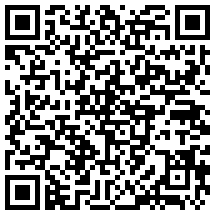Comtemporary Legal Rulings in Shi'i Law

Comtemporary Legal Rulings in Shi'i Law
Publisher :
Publish number :
D'abord
Publication year :
2009
Number of volumes :
1
(0 Votes)

(0 Votes)
Comtemporary Legal Rulings in Shi'i Law
The Qur'an and the corpus of hadith literature constitute a comprehensive legal resource that is invoked to regulate the various aspects of a Muslim believer's life. New situations and contingencies have prompted the experts in the field to delve into the sources and to devise methodological devices in usul al-fiqh to enable them to deduce fresh juridical rulings (fatawa) in order to deal with novel problems and issues. Consequently, the door of independent research (ijtihad) -- deducing legal rulings in the area of human-divine ('ibadat) and human-human (mu'amalat) relationships -- has remained open in the Ja'fari/Shi'ah Ithna 'Ashari/Imami school of thought. This is not a peculiar feature of the Ja'fari school, and it is presently being argued in Islamic scholarship that, contrary to the commonly held opinion, the gate of ijtihad was not considered closed by Sunni jurists of the 4th/10th century. This work contains the translation of a selection of new legal rulings that are based on the opinion of the eminent jurist Ayatullah al-'Uzma al-Sayyid 'Ali al-Husayni al-Seestani, who resides in Najaf, Iraq, and is the point of reference, or marja', for a good part of the Shi'ah Ithna 'Ashari community of believers, who revert to him for guidance. Three of his works, Al-Fatawa al-Muyassarah (FM), al-Mustahdathat min al-Masa'il al-Shar'iyyah (MMS) and Minhaj al-Salihin, vol. 1 (MS) were used in compiling the list of questions/answers and organizing them under appropriate subjects. The source is clearly marked in regular brackets after the response to each question to facilitate easy reference to the original Arabic text. The questions and answers in FM were formulated by the compiler in the form of a dialogue between a father and his son. Subsequently, they were sent by him to the office of Ayatullah Seestani in Najaf, Iraq for verification and approval. The legal responses in MMS are derived from the questions that were posed by laypersons to the jurist for his legal opinion. The third source, MS, was composed by Ayatullah Seestani and takes the form of an enumeration of his rulings on various issues. Translating a work of this sort is a challenging enterprise and one is torn between remaining faithful to the original text and being idiomatic. I have opted for the former at the expense of smooth and flowing sentences, and as a result, the reader will find that some of the sentences are stilted and unidiomatic. Regular brackets have been inserted to clarify the meaning of a sentence or to insert the Arabic term for the English equivalent. The square brackets are part of the original Arabic text. Also, a Glossary is appended at the end of the booklet to aid those who are unfamiliar with the Arabic terms.






